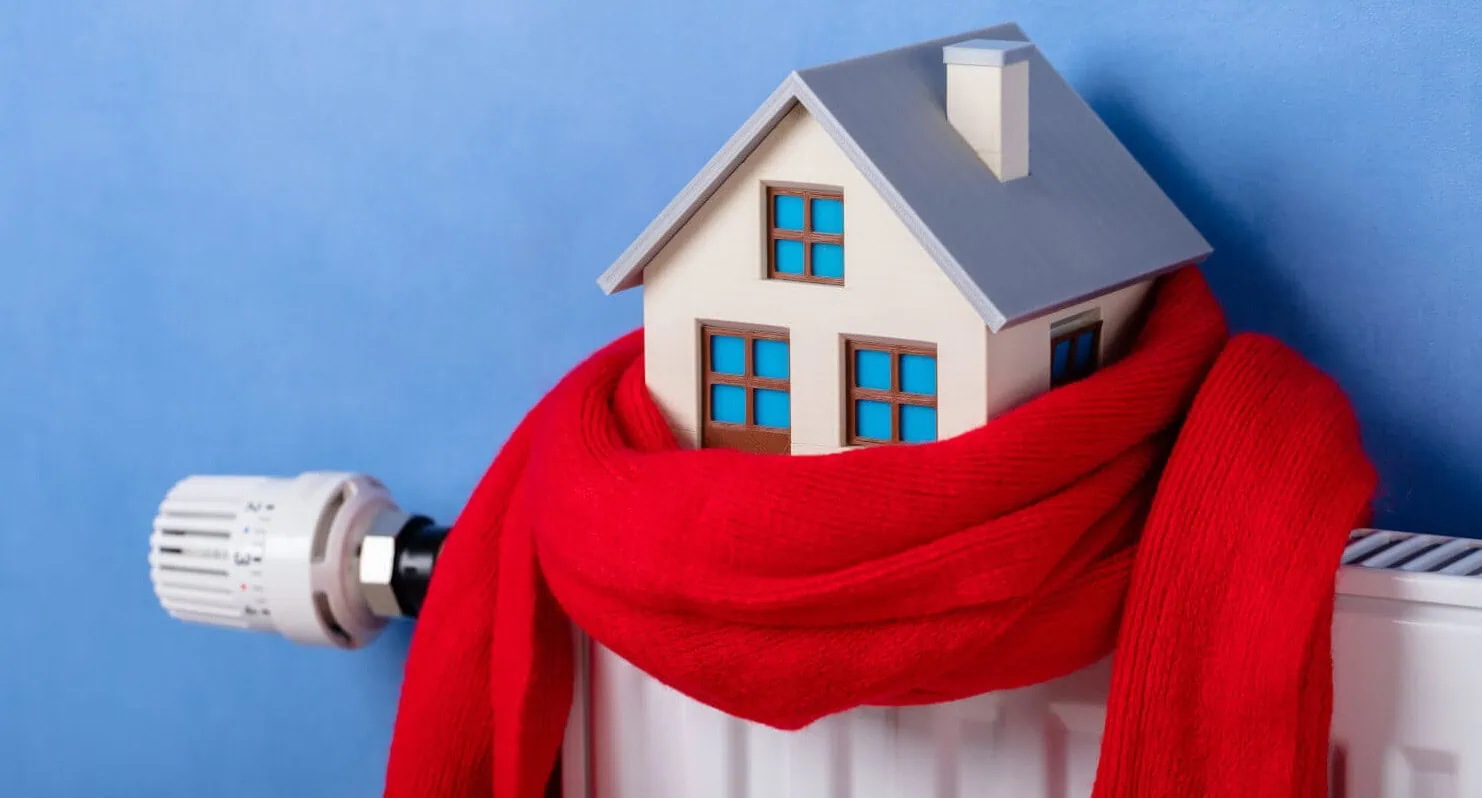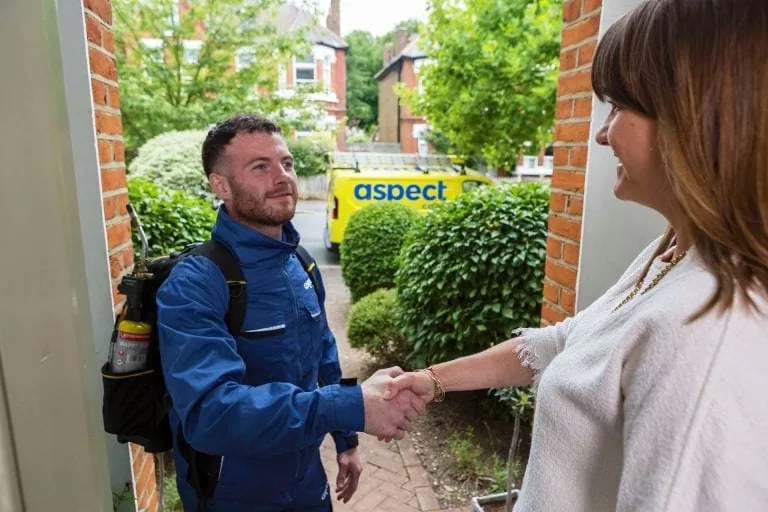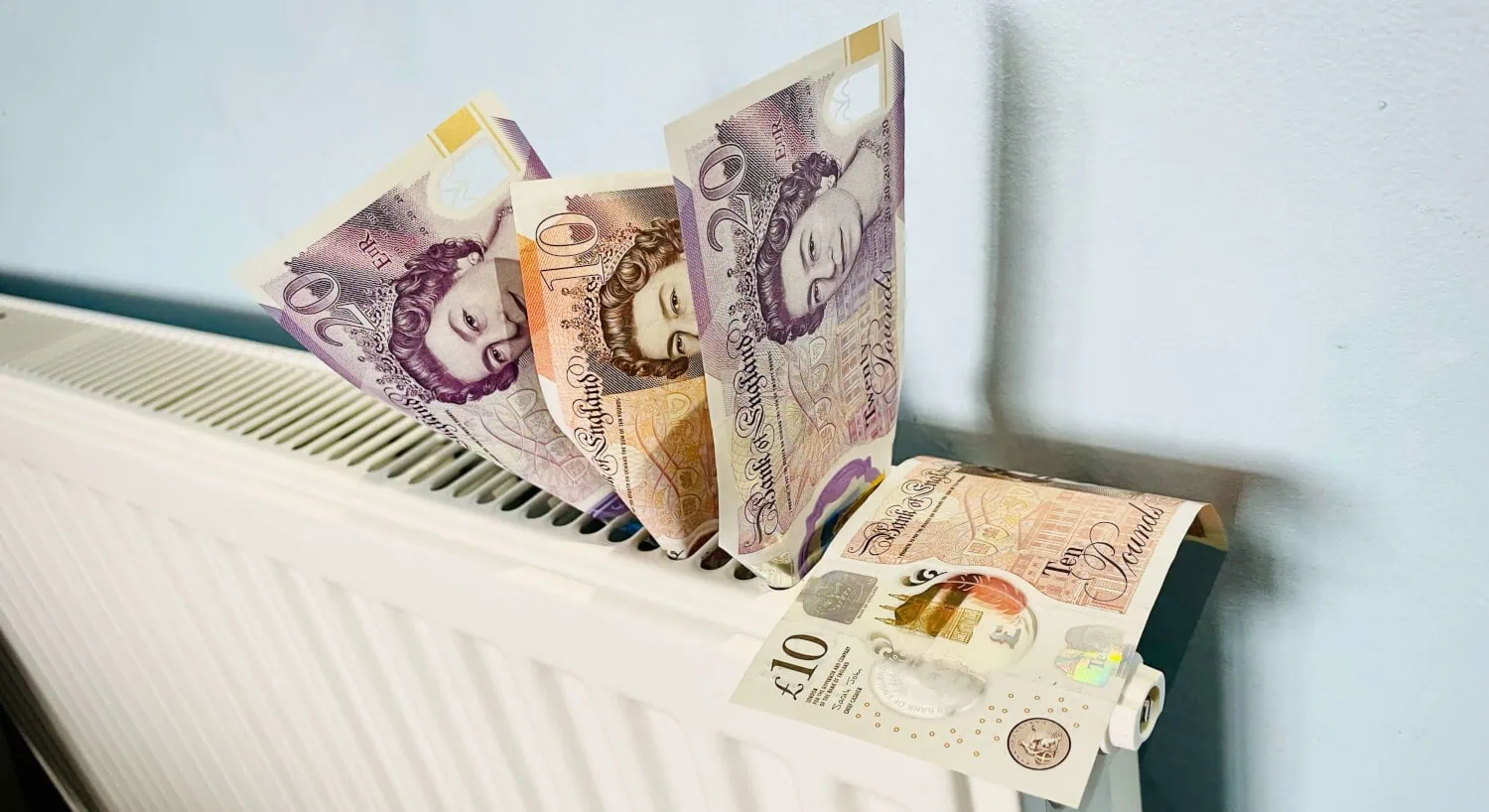Reducing your gas bills | Advice from Gas Safe engineers
With sky-high gas bills and a sharp rise in the cost of living, you may be wondering how you’ll cope financially this winter. No one should face fuel poverty, but while there’s no way to stop gas prices from soaring, there are ways to cut the amount you use and make payments easier to manage. Read on for advice on reducing your gas consumption, from Gas Safe registered experts on our team.

Ways to reduce your heating bills
When it comes to reducing your gas bills, the earlier you begin, the more you can expect to save. To get you started, here are some ways to be proactive without the need for a heating and gas engineer.
1. Reduce your combi boiler’s flow temperature
Many homeowners turn their boilers up higher than the manufacturer’s recommended temperature setting. This can waste gas a) because the boiler isn’t running as efficiently and b) you can’t comfortably use it if it’s too hot without adding cold water.
If you’re doing this, try turning your boiler down to the manufacturer’s recommended temperature. A report from the Heating & Hot Water Council (HHIC) suggests you could save between 6 and 8% on your gas bills by lowering the flow temperature of your boiler.
How does this work? According to the Energy Saving Trust, most car engines tend to burn fuel most efficiently at 55-65 miles-per-hour. Boilers work in a similar way. The recommended temperature ensures your boiler runs economically.
Popular manufacturer, Veissmann, says to set their boilers between 50 and 60°C for the hot water supply, and 75°C for radiators. Vaillant reflects this advice, while Baxi recommends a flow temperature of 60°C and up because a colder setting could allow bacteria to affect your water supply.
How can I change the flow temperature on my boiler?
Most combi boilers come with an LCD screen displaying tap and radiator symbols; you select the tap icon to change the water temperature, and the radiator to do the same for your central heating. You then use the buttons to change the numbers in single-degree increments until you reach the temperature you want. This method will vary between models, so please check your boiler’s manual beforehand.
Need some help? If you’re unsure of the right flow temperature for your boiler model, a Gas Safe engineer can both advise and calibrate your system for you. If they find a problem, they’ll be able to restore its efficiency levels so you can burn less fuel.

Book a qualified gas engineer
Our gas engineers are on call for domestic and commercial work.
- One hour priority attendance
- Local engineers on call 24/7
- Half-hour rates from £49.50 + VAT
- £10 off when you book online
2. Check that your radiators are working efficiently
With the back of your hand, try feeling your radiators for cold spots. If only the top, sides and corners feel hot, there may be trouble with the system. It could take longer to heat up than you expect. In most cases, the culprit is a build-up of black sludge (magnetite), created as water in the system corrodes the metal.
If this material builds in your radiators, it reduces their energy output. In fact, radiators that are half-filled with magnetite will take twice as long to heat your room – and your boiler has to work harder. This naturally means you’ll spend more money on heating.
So what’s the solution?
Our gas engineers use thermal imaging to look for issues, and they can take water samples for testing. If your central heating system is affected by magnetite, they’ll likely recommend a system power flush. Power flushing involves using a special pump, a chemical, and a magnetic filter to clear the sludge from your central heating system. The process can restore your system’s efficiency by as much as 30%.

3. Don’t heat the rooms you don’t use
Another method of reducing your gas bills is to turn off radiators or lower the thermostat in rooms you barely use (like a spare bedroom or storage space). Switching the valve off and closing the door to your unused rooms could mean you use less energy heating your main living spaces. It could reduce the amount of heat escaping through the windows and walls of those unused rooms too.
We’d recommend you keep a close eye on which rooms are coming on and when. You don’t want a higher bill just because your heating came on as you left for work.
4. Check your room thermostats
According to The World Health Organisation (WHO) and the Energy Saving Trust, the optimal temperature for your home is between 18 and 21°C. However, lowering this by just a single degree can help reduce your gas bills. In fact, Worcester Bosch states that doing so could reduce your fuel consumption by as much as 10%.
Tip: Vaillant suggests keeping your bedroom cooler than the rest of the house. By lowering the temperature by 2°C, you not only save money, but you could also enjoy a better night’s sleep. This is backed up by the Sleep Foundation, which recommends a bedroom setting of 16°C.
Above all, you’ll want to make sure that your thermostat is working correctly. You can do this by getting a thermometer, available for just a few pounds, and checking that your room’s temperature corresponds to the setting on the thermostat.

5. Check your smart meter
If you have a smart meter installed, keep an eye on how much you’re spending, either through the meter itself or the in-home display (IHD). By watching your habits, you’ll have a better idea of what you’re using and how you can be more energy efficient. So what are the figures to back this up? A study from Smart Energy GB found that around 86% of homeowners with smart meters changed their behaviour to try and cut their energy use.
Tip: Energy providers install smart meters free of charge, and you can request one at any time. They’ll also supply an in-home display, and a communications hub that connects to your provider so they can bill you accurately. Now there’s no reason not to get a smart meter!
There are also smart heating controls to consider. Companies like Hive and Nest offer cutting-edge thermostats at a reasonable price, which then connect to your mobile device. You can raise and lower the heat as you see fit, and you won’t waste money heating an empty home.
6. Check for gaps around windows and doors
Draught proofing is a good way to stay comfortable in winter while on a tight budget. With less cold air indoors, you’ll be less inclined to put the heating up high. You can buy draught excluding tape for as little as £10, and window seal strips for around the same price.
Did you know? Energy Saving Trust suggests that cling film can be a cheap insulator, so you can theoretically stop heat escaping by placing it around your windows. We’d never actually recommend this as a solution, and it’s certainly no substitute for efficient double glazing!
Has your boiler been checked for problems?
Reducing your gas bills isn’t just about cutting the amount of gas you use. It also comes down to the annual boiler service. Booking a service every 12 months helps keep your boiler in the best condition possible and also keeps the warranty valid. During the service, your engineer checks multiple parts of the installation, including the exhaust gases to confirm gas is being burnt efficiently. If it is, then you’ll achieve the same heat and hot water temperatures while spending less in the long run.
If your boiler isn’t running as efficiently as it could, the engineer can clean and adjust the components to optimise its performance for you.
Important! If you haven’t had your annual boiler service this year, then you should get one booked. The service will give you peace of mind that you aren’t wasting money every time your boiler’s running. Remember that only a Gas Safe registered engineer is qualified to service or repair your boiler.
Should you switch gas supplier?
In the past, switching energy suppliers was often the best way to get a good deal. Today, advice is less practicable due to the sharp increase in rates. In late 2021, Martin Lewis from Money Saving Expert told homeowners to go onto the price cap once their current deals expired, simply because there were no better options available.
He changed his opinion in August 2022, stating, “If you’re offered a year’s fix at no more than 95% above your current price-capped tariff, or 100% more if you very strongly value budgeting certainty, it’s worth considering.”
Given this advice, we’d suggest shopping around if you’re nearing the end of your existing deal, in case you find a new, cost-effective deal that works for you.
Yearly boiler servicing from Aspect: Why not book with us today for your gas safe boiler service? We’ll send a Gas Safe engineer to ensure your home’s heating system burns gas efficiently. We can also power flush your heating system if needed – allowing you to save as much as you can on your energy bills this winter.
Areas we cover

Our gas engineers are available throughout Greater London and the Home Counties. Our service area includes Berkshire, Buckinghamshire, Essex, Hertfordshire, Kent, and Surrey. Use our postcode checker to see instantly if we cover your area.
If you need a commercial or domestic gas engineer outside of this coverage area, we may still be able to help. Our team will check availability and see if one can be scheduled for your location.
Call or submit a callback request, and a member of our team will be in touch with you.
Was this article helpful?
Think we could improve this article? Please let us know